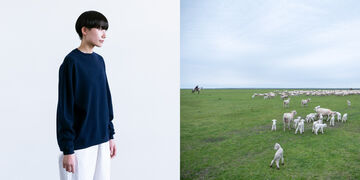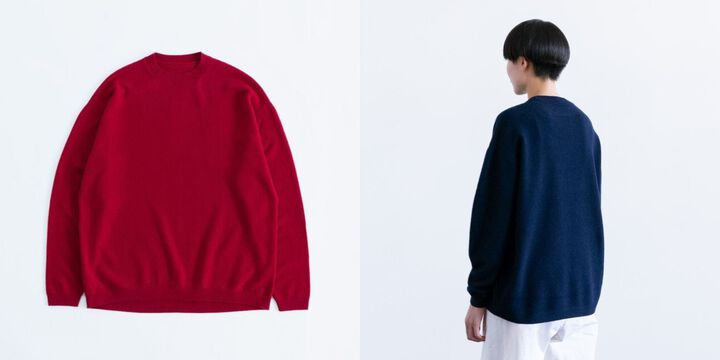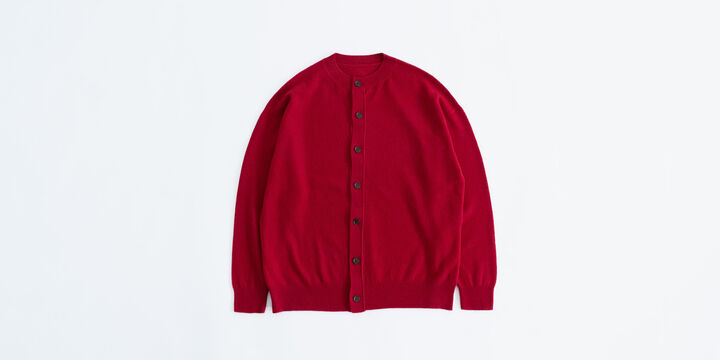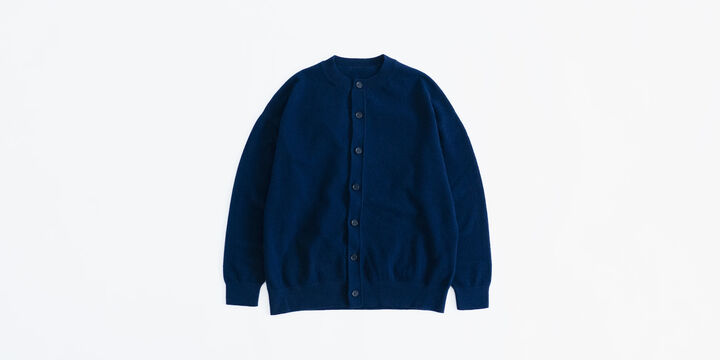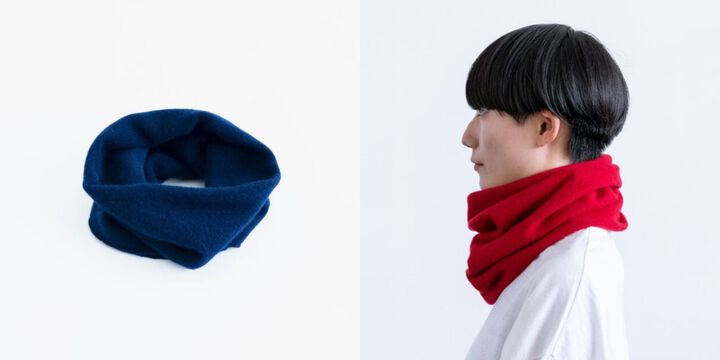Our original sweater feels good to wear, with a soft texture. It's a simple design, but the slightly dropped shoulders and wide silhouette make it perfect for a casual look.

A Knit Director, Mr. Wataru Shibuya
Shibuya's grandfather ran a knitwear factory, whereas his father managed a factory specializing in twisted yarn. Shibuya learned sewing and pattern-making from his grandmother, and began creating his own clothing during his middle school years. He decided to pursue a career in knitting when he was around 25 years old and established his own brand. However, after the 2011 Great East Japan Earthquake, he changed his way of thinking. "At that time, I was sacrificing sleep every day to work towards my goals, develop my brand, and do what I wanted to do. Eventually, I realized that I was only pursuing my own ambitions and not helping those affected by the catastrophe. If I work tirelessly without any rest, my aim is to devote that hard work to benefit others. That's when I started focusing on preserving Japan's textile industry as the core of my activities." Shibuya stated.


His experience working with Gauchos on a Uruguayan sheep farm
to learn about the secrets and origins of high-quality wool.
During his research on yarn materials and textures, Shibuya became interested in the soft and enduring wool from sheep in Uruguay, South America. With little information available about Uruguayan wool, he spent a month in Uruguay, living with local gauchos and working on ranches to understand the environment where the sheep were raised.
In the vast grasslands, stress-free Uruguayan sheep graze freely. Gauchos on horses move around 12,000 sheep to designated pastures, monitoring their health, assisting with births, and shearing their wool once a year. Young sheep with unsteady feet are gently guided, and newborn sheep was sometimes carried on the laps of the gauchos.

Uruguayan wool is renowned for its softness and elasticity.
This softness comes from the fine texture of the raw wool, while its elasticity is a result of the natural crimp of sheep's wool. "I gather wool from around 200 sheep and inspect it. Out of them, the Uruguayan Merino sheep have a consistent crimp that is quite prominent. This crimp adds to the sweater's knit elasticity." Shibuya explained.
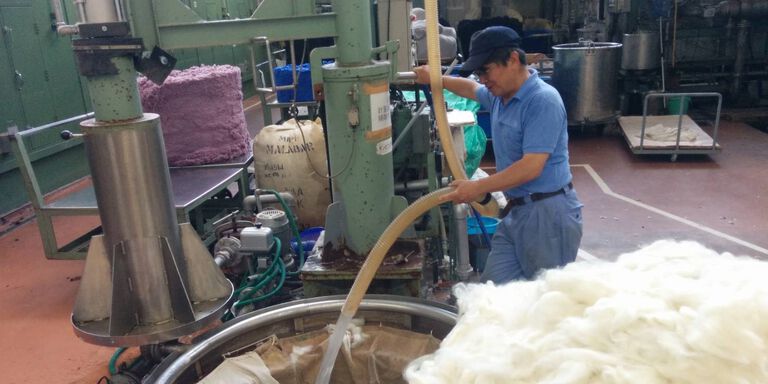

Made in Japan Quality
Motivated to protect Japanese factories, Shibuya partners with artisans by visiting domestic factories and collaborating with craftsmen to develop knitwear. For this project, Fukaki Woollen Textile, renowned for their expertise in luxury materials and often referred to as the "Fukaki of Cashmere," handled the dyeing and spinning processes. The sweaters were made using yarns from Fukaki Woollen Textile and crafted by Knit Okazaki, a factory that specializes in "Wholegarment'' knit production. Wholegarment knits provide a seamless fit, effortlessly adapting to the wearer's body shape. The final details and washing, which are crucial to the texture of the knitwear, were handled by Ishikawa Senko. These trusted artisans, specially selected by Shibuya, played essential roles in realizing his vision.
